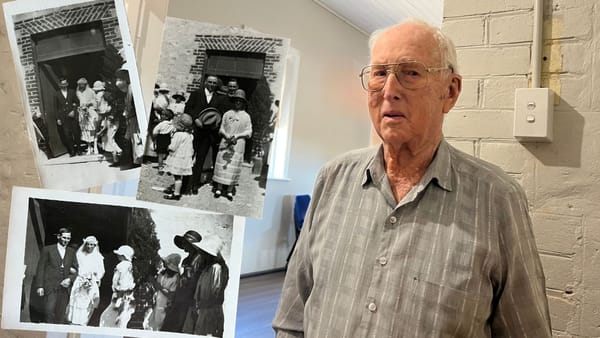Murray Bridge school becomes first in Australia to connect to Elon Musk’s Starlink
The Space X satellite service isn't the only innovative internet technology being trialled locally, either, thanks to Unwyred's blockchain-based capability.

This story was originally published behind Murray Bridge News’ paywall. Paywalled stories are unlocked four weeks after publication. Can’t wait that long? Subscribe here.

A century after the steamboat age ended, Murray Bridge has again found itself on the frontier – this time of internet technology.
Murray Bridge Special School has become the first school in Australia to get connected to Starlink, a new satellite internet service offered by US billionaire Elon Musk’s company Space X.
Unlike NBN Co’s Sky Muster service, which relies on just two conventional satellites, Starlink runs through a network of much smaller satellites – of about 1500 and growing – in low orbit.
The end result for users is a connection that is about six times faster, and faster even than an NBN landline connection, at up to 150 megabits per second.
It is also supposed to be 30 times more responsive than NBN satellite, with latency – or transmission delay – of about 20 milliseconds, rather than 600ms for NBN satellite internet.

Learning facilitator Karen Meddle said a more reliable internet connection would make all the difference for the school’s students.
“It will be great for us not to have that unpredictability when you're trying to get a lesson done,” she said.
"We use technology quite a bit to support and enhance student learning."
For example, both verbal and non-verbal children used web-based apps such as Reading Eggs to grow their communication skills, she said.
Students on the autism spectrum, who valued routine and task focus, were particularly upset when internet drop-outs interrupted their learning.
Murray Bridge News understands the special school’s connection is a trial for the Department of Education.
If successful, the technology may be rolled out to other, more remote schools around the state.
Internet service provider Netvault is managing the installation.
Senior systems consultant Radek Tkaczyk said the department had reached out after his company announced Project Halo, a $100,000 grant program targeted at rural schools.
No other school in the nation had yet been hooked up to a Starlink enterprise connection, he said.
Starlink is still in a beta phase in Australia, and is not yet widely available.
But it’s not the only new internet technology being trialled locally.

Blockchain technology powers Murray Bridge start-up
Daniel Gower and the team at Murray Bridge-based start-up Unwyred think blockchain technology could be the key to better service for regional internet users.
The company – formerly Launch ISP – has now connected its first 30 customers after a year-long fundraising and development phase.
Initially, those customers would not notice too much difference after switching over from NBN wireless, 5G or 4G internet – after all, Unwyred has a wireless transmitter of its own on a tower at White Hill.
The difference comes on the back end.
Blockchain technology allows the company to sell spare storage space on its servers, reducing the costs to be passed on to its customers.
Under the same scheme, customers are also given credit for any unused data they have left over at the end of a billing period.
“Our main goal … as we grow is to bring more local jobs to the area,” Mr Gower said.
“Kids, you want to keep them in the area, and we want them to learn about blockchain."
“No-one’s done (what we’ve done) anywhere in Australia, or the world.”
- More information: unwyred.com.au.
Correction: An earlier version of this story incorrectly suggested Murray Bridge Special School had won a $100,000 Project Halo grant.





